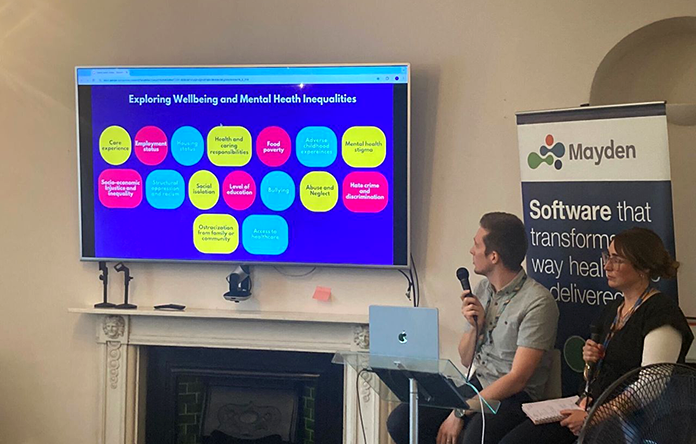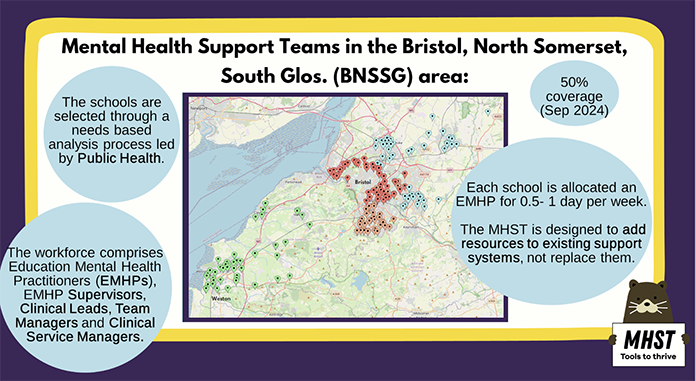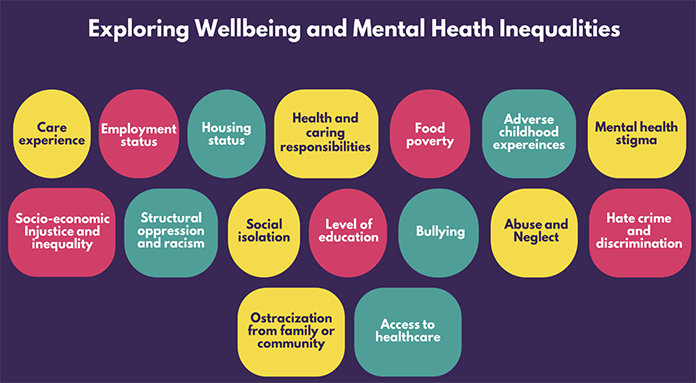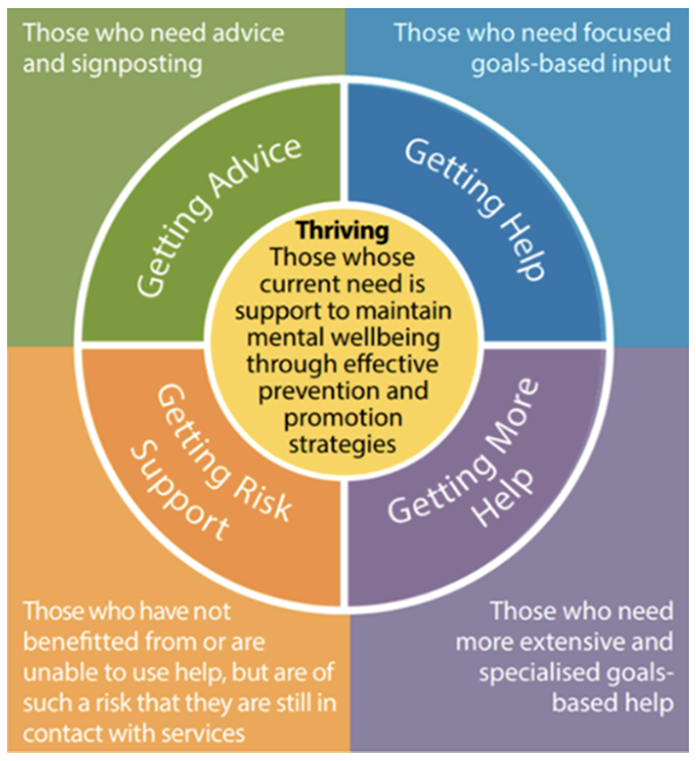
As part of our half day event, our second talk was around early evidence based interventions in schools, and also highlighted the importance of whole school approaches. We were joined by Tom Pratt from Off The Record (OTR) Bristol, and Fran Yallop from Avon and Wiltshire Partnership (AWP) NHS Trust.
If you missed the event, you can catch up on demand here.
OTR Bristol is a youth-led mental health social movement, which is shaping and influencing organisations around them and improving access to mental health services. They offer a holistic range of support for mild to moderate mental health needs. Partnerships are a key part of their work, allowing them to collaborate with others to share beliefs and resources.
OTR Bristol and AWP have a unique partnership within their area. They focus on delivering MHST support across the Bristol, North Somerset and South Gloucestershire area (BNSSG) area, in collaboration with individual schools and colleges. The service is based on early evidence based intervention and health promotion.

By showcasing their expertise and the early intervention services they offer to young people, they have been able to increase accessibility to mental health services for underrepresented communities. They have also empowered young people to be active participants in their care and treatment journeys.
The MHST’s have three main outcomes that they work towards:
- Delivering evidence based interventions for mild to moderate mental health problems
- Supporting senior mental health leads within schools and colleges to introduce or enhance their whole school approach
- Give advice to school staff and communicate with external specialist services to ensure CYP get the support they need, whilst remaining in education.
Why early evidence based interventions?
Early intervention is crucial for addressing mental health issues, as many begin before age 14. While some young people may meet clinical thresholds, others struggle without reaching them, leading to growing waitlists. Embedding services in schools offers timely support and preventative measures.
Working within a low-intensity CBT framework increases access to evidence-based therapies for young people in their familiar school setting. By intervening early, the development of entrenched negative behaviours and coping mechanisms can be prevented. The goal of the OTR Bristol and AWP partnership is to equip young people with lifelong skills to manage their mental health effectively.
Mental health inequalities and improving accessibility
Tom and Fran also discussed how certain communities, for example, young people with SEND, young people of colour, and young people from lower income backgrounds are overrepresented in need, but underrepresented within services.
Inequalities such as care experience, bullying, abuse and neglect, level of education and social isolation need to be overcome in order for children and young people to get access to the support they need. However, young people faced with such inequalities are often also faced with significant barriers to accessing the right level of support. For example, if cost of living issues are present, people can’t afford to get to appointments. Stigma around mental health along with lack of representation for these communities can also affect how they access support.

One of the great things about the partnership between OTR Bristol and AWP is that they ensure diverse representation within their workforces, as well as embedding youth voice into work that they do. By incorporating youth ambassadors and peer representation, resources can be co-produced with young people. Therefore, this makes the evidence based interventions much more effective.
Whole school approaches
As part of their whole school approach, OTR Bristol supports mental health leads in schools by offering practical guidance. This includes streamlining the referral process to minimise administrative burdens on busy school staff. They collaborate with mental health leads to assess young people’s suitability for their services, ensuring they receive appropriate support. If a referral isn’t suitable for their service, they work to identify alternative options within the wider mental health network.
Their MHST’s offer reflective space sessions to support school staff. These provide a supportive environment for staff to reflect on their work with young people. Through conversations, staff can generate their own action plans. This empowers them to take proactive steps to improve their practice and better support students’ mental health needs.
By collaborating with the iThrive model and other agencies, they’ve created a multi-agency front door. This streamlined approach reduces the burden on school mental health leads. It also ensures young people are directed to the most appropriate support. Whether it’s through MHST or other services, the goal is to provide timely and effective mental health care.

Read more about how to support whole school approaches.
Through combining their expertise and resources, OTR Bristol and AWP NHS Trust are setting a powerful example of how effective collaboration can improve mental health outcomes for young people. Their partnership demonstrates the importance of evidence based interventions and whole-school approaches in promoting positive mental health.
Catch up on all of our webinars on-demand here.
